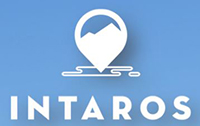This report is summarizing the discussions during two virtual meetings in 2021 with different
stakeholders with interest in the Barents Sea and off-Greenland ecosystems, respectively. The
content of the meetings was based on the work from Task 6.8 “Demonstrations for fisheries and environmental management agencies” and Task 6.2. “Improved ecosystem understanding and management”. Stakeholders were representing different marine and maritime-related authorities and directorates in Norway, Greenland and Denmark, the fishing industry, CAFF, Greenland Institute of Natural Resources, INTAROS partners and other EU project participants. The presented monitoring and model results were refined and angled to be of relevance and use for these stakeholders.
The stakeholders were in general interested in the approach, results, and conclusions, from the INTAROS work. The discussion made it clear that as users in charge of sectorial human activity management, they valued scientific testing and suggestions for improving our ecosystem understanding. They recommended that the next step could be to look at not only national data sets indicators, but also relate those to an Arctic international setting. The Environmental Agency suggested that a climatic approach would be useful also for the Barents Sea. Likewise, the more complex food web indicators presented for the Barents Sea could be useful to apply to the Greenland coastal system. Stakeholders from both areas emphasized that long-term monitoring data of key variables is important for their work and that models can be useful with supporting information on indicators and future scenarios if the model uncertainty is assessed and explained.
These seminars highlighted the importance to invite stakeholders responsible for all sectors of
marine-related human activities to dialogues with research and monitoring of the climate, natural
resources and ecosystems. In a fast-changing scientific world, with new knowledge, increasing
amount of data and research, it will be important to be informed and up front to recognize and
deliver the best possible information to allow for long-term sustainable use of marine resources.
Community based monitoring has been initiated at both study sites and is useful to facilitate the
link between resource users and decision makers.
Type of deliverable
Report
Number
D6.10
Lead beneficiary
IMR
Dissemination level
Public
Due (in months)
54
Deliverable file
Open deliverable
YES
